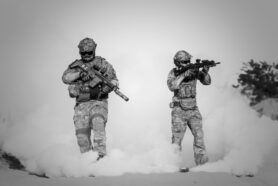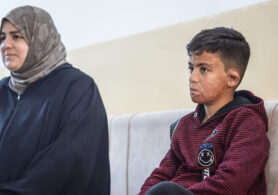I challenge anyone to find a more precise air campaign in the history of warfare…The Coalition’s goal is always for zero human casualties
Lieutenant General Stephen J. Townsend, Coalition commander
Planes were bombing and rockets were falling 24 hours a day, and there were IS snipers everywhere. You just couldn’t breathe.
Ayat Mohammed Jasem, survivor of a Coalition airstrike that killed at least 32 people.
In June 2017, a US-led coalition launched an offensive on the Syrian city of Raqqa. For several months, the Coalition provided air support to the Syrian Democratic Forces (SDF) as they fought Islamic State (IS), who had committed war crimes and crimes against humanity in the city for years. In their attempts to oust IS from the city, aerial bombings reduced swathes of the city to rubble and severely damaged infrastructure in the process. Official rhetoric from the Coalition asserted that all necessary measures were taken to spare civilians. In reality, however, thousands were killed or injured and countless more were displaced in the process.
Amnesty International, in conjunction with Airwars, carried out extensive research locally and remotely to investigate how well the official rhetoric on this offensive matches up with realities on the ground in Raqqa. On this website, they present their findings through a concise briefing paper, a series of powerful case-studies and a collection of hard-hitting testimonies. Perhaps most impactful is the ‘people’ tab, where the 1,028 confirmed civilian casualties are named. Accompanying this research is a toolkit including background information, an overview of the research methodologies used, supplementary information on International Humanitarian Law, technical facts regarding the weapons used, and links to other resources.
On this slickly-produced and interactive website, Amnesty have delivered a valuable resource for those looking to learn about the conduct of remote warfare in Syria. It makes for uncomfortable but essential reading for those represented by the militaries involved. Above all, it renders the profound disconnect between rhetoric and realities in this intervention devastatingly clear.
Source:
Amnesty International – War in Raqqa: Rhetoric versus Reality



